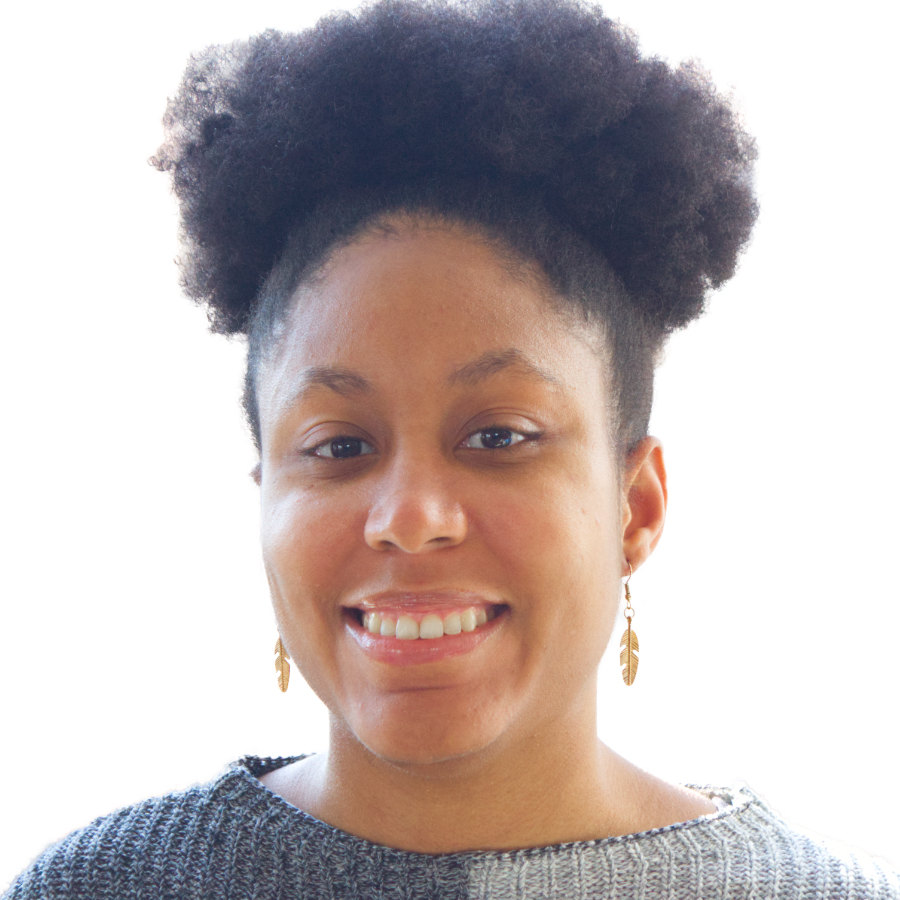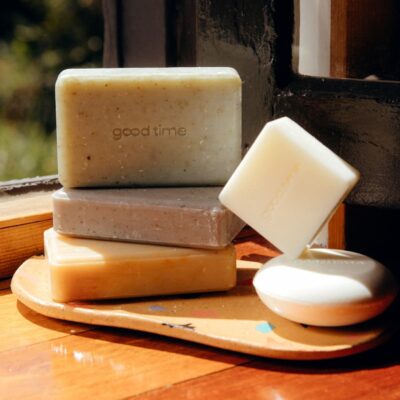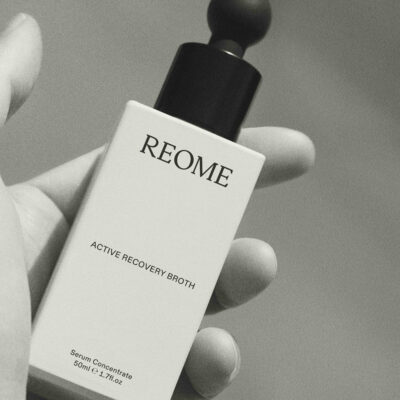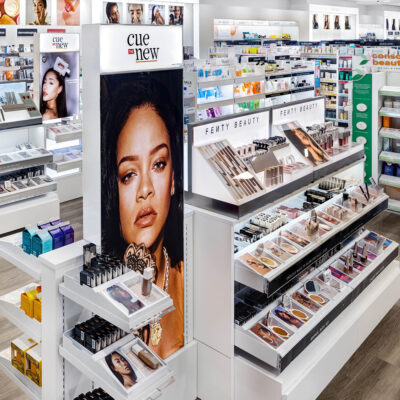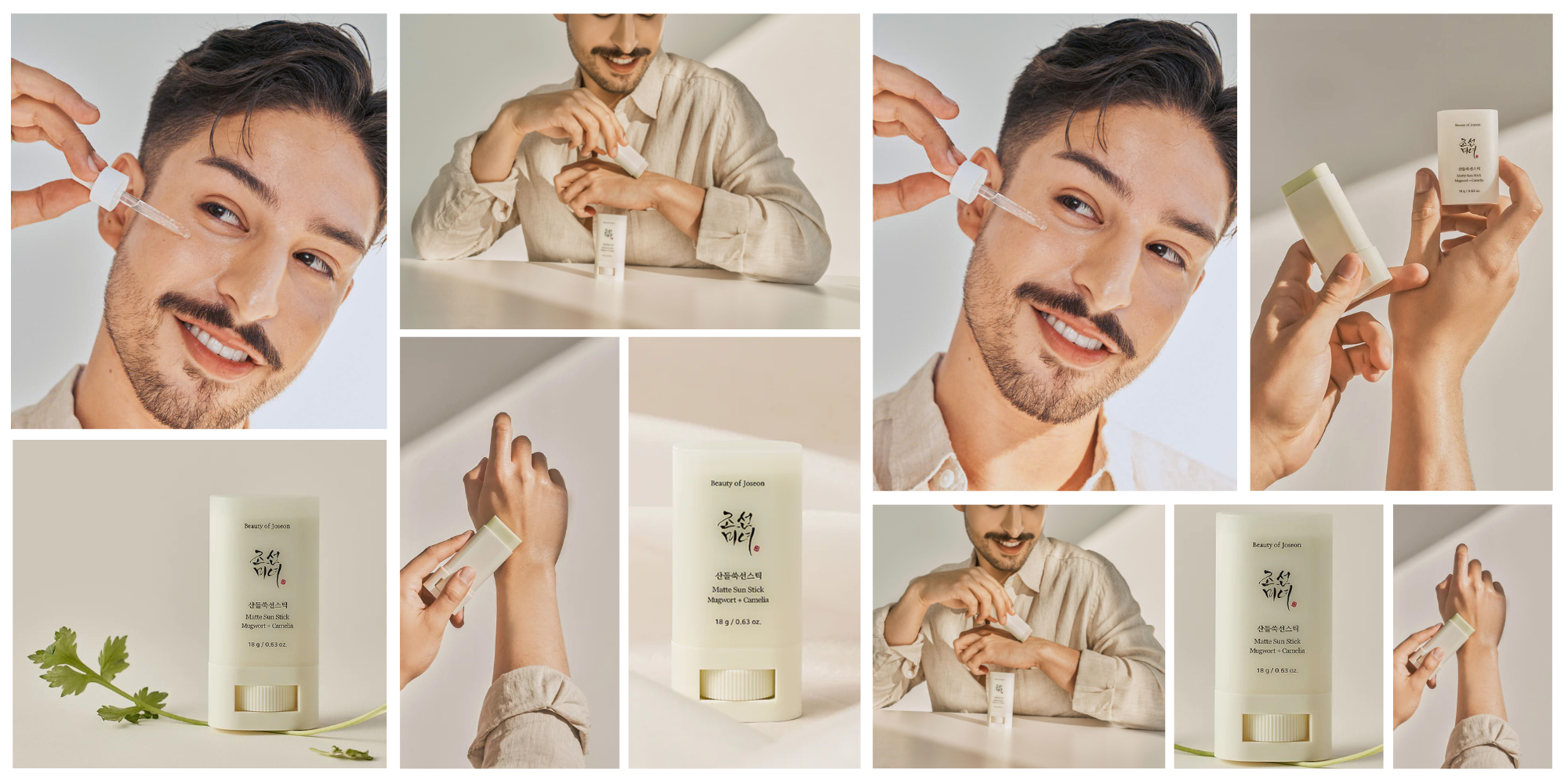
Cosmetic Chemist Ramón Pagán On His Beauty Of Joseon Collaboration And The Evolving Influencer Space
On social media, Ramón Pagán, better known as Glow by Ramón, is a sunscreen savant. To evaluate chemical sunscreens, the London-based American beauty content creator uses what he calls a six F testing rubric covering feel, finish, formulation, fragrance, filter and foundation wear. For mineral sunscreens, he uses what he calls a four B testing rubric covering beard, beading, beat and Brown skin friendliness.
Pagán, an aesthetician, cosmetic chemist and product formulator with 100,000-plus followers across Instagram, YouTube and TikTok, has reviewed Everyday Humans’ Resting Beach Face SPF30 Sunscreen Serum (lightweight and not greasy), Krave Beauty’s reformulated Beet The Sun SPF 40 PA+++ (glowier than the original), Sun Bum’s Daily Mineral Sunscreen Moisturizer (no white cast), Eucerin’s Sun Face Oil Control Gel-Cream SPF 50+ (a holy grail) and many more. While he always discloses whether he’s been gifted a product, Pagán generally pays for the sunscreens himself.
Given his investment in and deep knowledge of sun care, it’s no surprise that Pagán’s first product collaboration involves sunscreens. He’s developed the $28 Glow + Sun Set containing Matte Sun Stick SPF 50+ and Glow Deep Serum, and $18 Relief Sun: Rice + Probiotics SPF 50+ with Beauty of Joseon, a South Korean brand founded by Sumin Lee, who rooted it in traditional herbal medicine.
Beauty Independent spoke with Pagán to learn about the partnership, the gap in the sunscreen market he’s filling with Matte Sun Stick SPF 50+, other products he’d like to make, how brands can better work with influencers, and where he thinks the influencer landscape is heading.
What sparked your interest in skincare?
What got me into beauty in the first place was I just had really bad acne as a teenager. I feel like that’s the very common genesis for a lot of us who became skincare content creators. Through trying to find solutions for this issue, it became an obsession of learning about ingredients and trying different products.
Slowly but surely I became very enveloped in the beauty industry because I didn’t have a lot of knowledge in skincare when I first started my acne journey. We’re talking 15 years ago at this point. When I was in high school, I resorted to makeup to cover it up. And so my intro to beauty was really more so through makeup and foundation, concealer-based products.
I’ve never been a full glam person. For me, it’s always been about how can I get the best base possible. Eventually, you learn makeup can only cover up so much. You visually might not see breakouts, but the texture is still there. That segued into a skincare interest, which actually did start with Korean skincare.
How is the Matte Sun Stick different from other sunscreens on the market?
Fundamentally, there was nothing on the market I thought was very matte, but also had a decent elegant texture. Also, a very big part of my Glow by Ramón brand is being intentional with your skincare.
If you don’t have the time or the need for a million steps in one, you should have a few products that really just give you full benefits. There are antioxidants in the Sun Stick. There are nice soothing ingredients in the Sun Stick. Because it is a wax lipid base, it has a moisturizing texture that is a little bit more lightweight on the skin. It’s not going to be this heavy greasy texture.
You really could just use this as your one step in the morning, be done with it or reapply it. I think that’s really useful and what sets it apart.
What inspired you to create sunscreen rather than another product?
Sunscreen is low key my bread and butter on social media. It was really what got me discovered. What’s helped my platform really grow is my interest in trying out sunscreens and sunscreen education. A big part of the Glow by Ramón brand is sunscreen.
Beauty of Joseon reached out to me, and they’re like, “Hey, we want to create a product with you. We’re thinking of a sunscreen.” I said, “Perfect, that makes the most sense.” So, the talks began, and we settled on sunscreen. It’s always a matter of listening to what people want, what their requests are, and you’ll figure out where the holes are in the cosmetic industry.
Based on a lot of comments and feedback I got on my content, I really realized people want something that’s convenient, low maintenance and, most importantly, something that is matte because there is just such a huge hole in the sunscreen market for something that really did leave a matte finish that worked well for oily skin.
We decided to go with a stick because reapplication is really important, especially if you have oily skin. You’re going to get shiny and greasy throughout the day. A lot of my platform, as much as it is people trying to find sunscreens, especially sunscreens that don’t leave a white cast, I have a lot of men who are like, “I’m just trying to find something that works that doesn’t involve a lot of steps.”
What ingredients are included in the formulation and the thought process behind them?
When we decided on the final concept for the product, obviously I had to look at what was going to make things matte and what was going to create the best overall texture. You usually use benchmarks, and these are essentially base formulas or already established market formulas.
A big thing when it comes to the Matte Sun Stick is its solid texture. The only way to get that is by using waxes and certain oils. That’s a big thing that Beauty of Joseon was questioning. They’re like, “This has silicones in it and that’s going to raise a lot of questions.”
As a chemist, let me tell you silicones, it’s a huge ingredient category. It’s not just one ingredient. What’s great about silicones is you have silicones that are volatile, meaning that they evaporate off the skin very easily, so you don’t really feel them. There are also silicones that really leave a really nice powdery finish, so it’s great for oily skin. That was a point I had to address with Beauty of Joseon. Then, when we actually met the manufacturing team behind the sun stick, they reconfirm the same thing to the brand.
I always consider the inclusivity of the product. A white cast was a big concern for me. As much as you have silicones that leave a powdery, non-greasy finish, you also need to have mattifying powders in a formula. With that, you also have the concern of it on deeper skin tones.
How can I make this as matte as possible while having as little chance of a white cast as possible? Realistically, that’s a very fine line to tread. We didn’t nail it 100%, and I try to be as transparent as possible. This can still potentially leave a white cast on very deep skin tones.
How did you manage expectations for your business partnership, and what you wanted to see in the product?
They were like, “We are coming to you because of who you are and what you do, and we’re going to trust essentially all the things that you want to do.” Technically, my Sun Stick falls under a mugwort line, which I don’t actually think existed for Beauty of Joseon yet. I think my product was the first in that.
One of the ingredients I really wanted that didn’t make it into this product was a specific pigment-fading ingredient, but the ingredient was an oil base, and it made the Sun Stick too oily. I was like, “I understand clearly it’s not going to make the product I want. Therefore, we need it out.”
Did you have target audience in mind when developing the product?
I want a product I’m going to use. I noticed the hole in the market for this specific type of product. In my comments, I always had people being like, “I’m a man, I’m not looking for a lot. I have facial hair. What’s going to work for me?”
I have super oily skin. I hate reapplying throughout the day because I get greasy. So, I always think of those people because, if you see it so frequently, you’re like, OK, this is an issue. We need to fix this somehow.
Also, I cater to the brown and Black community in the skincare world because it’s a demographic that we don’t see so much representation for. I’ve been very grateful to have the platform that I have. Therefore, I will always use that to uplift brown and Black people in the skincare community because that’s what my priority is as an influencer and going forth as a chemist with products that I end up developing.
@glowbyramon The matte sunscreen of your dreams #sunscreen #mattesunscreen #mattesunstick #skincare #sunscreen #spf #oilyskin ♬ Roxanne – Instrumental – Califa Azul
If you were to create another product, what would it be?
A product that I always talk about, and I tease a lot on my social media is an SPF lip gloss that I developed for my own personal [use]. That formula is staying in my pocket. Other things are sulfur treatments. Sulfur’s one of my favorite ingredients. There’s a lot of different ways to use sulfur aside from a spot treatments, and I’m waiting for a brand to really branch out into that. If a brand doesn’t do it soon enough, it’ll be me.
Where do you see the skincare influencer community going?
I see it continuing to grow, especially in the field of industry experts. Having so many prominent chemists, derms and aestheticians in the scene now, I feel like it’s encouraging people to pursue careers as skin professionals.
Are there ways in which brands should improve upon their relationships with content creators?
Pay creators. There’s a lot of irony in people accusing content creators/influencers of always being paid promoters for everything they talk about and how we’re deceiving people, but you’d be surprised how little of the content out there is actually sponsored. Also, on a personal note, I think more brands should steer their marketing to be more science-led by utilizing professionals.
What’s been your best and worst experience as a content creator?
The best is definitely the people I’ve gotten to connect with: other creators, other professionals, brand owners. My goal when I first started creating content was actually just to be able to use my content as a means of networking for potential jobs and opportunities, so to be where I’m at and what I’ve been able to do is beyond what my expectations were.
The worst is definitely the comments and what people say about you. You create content and put yourself in a position to be publicly judged and spoken on, and it’s wild to me that there are entire Reddit threads that talk about us in such a negative way when, at the end of the day, we’re just talking about lotions and creams.
How do you want to evolve your content going forward?
I want to vary what I talk about a little more. I feel like I’m very niche in what I do, but I have an entire life outside of content creating and formulating. I also want to go mainstream with my content: more media opportunities and major collaborations. I see creators become brand ambassadors and that seems like such a fantastic opportunity.
What do you make of the deinfluencing trend?
I personally dislike deinfluencing. Firstly, skincare trends on social media already irk me, but, with deinfluencing, I think there’s so much subtlety in telling someone what they should and shouldn’t use. Skincare can be self-care, and skincare can also be a means of managing skin conditions. Again, there’s irony in non-professionals peddling deinfluencing as a trend in my opinion.
This interview has been edited for brevity and clarity.
